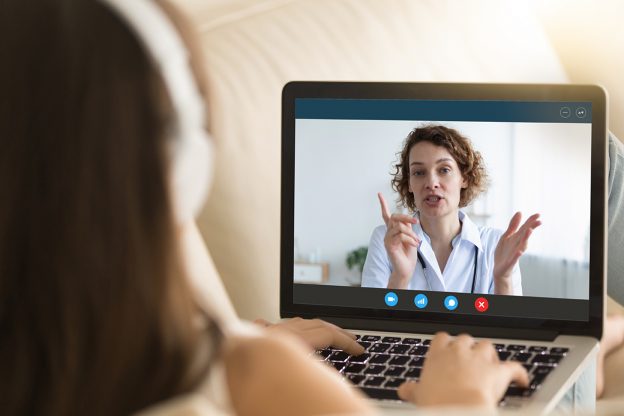Telemedicine is quickly becoming an accepted part of pediatric practice, and there are many reasons for this. In the past, teletherapy was often seen as a supplementary service, with relatively few patients receiving significant benefits. The technology used in telemedicine has improved vastly since the first teleconferencing services were developed, making telepractice a viable option for many physicians’ offices. While it is most commonly associated with children’s health care, there are several other applications for teletherapy that can benefit any medical office.
Teletherapy is appropriate for speech-language pathologists (SLP), pediatric speech therapy New Jersey and it can be more helpful than conferencing when an SLP is unavailable or unwilling to commit to long-term patient care. The teleconference provides an immediate connection to the doctor, making it possible to address immediate needs rather than waiting for a break in the schedule to allow a more extensive discussion between the two. Firms using teletherapy often charge lower fees for teleconferencing than those who use a doctor’s office. Costs for pediatric teletherapy begin at $65/ Session, with some sessions ranging up to $90/ Session depending on the length of time in 30, 45, or sixty-minute increments. Most speech-language pathologists are a private practice and don’t accept insurance.
How can speech therapy help your child?
Teletherapy works well for school-age children. Some children who have learning difficulties that make conferencing impossible can benefit from a one-on-one session with a speech-language pathologist. An individualized program of instruction tailored to a child’s needs can make a big difference in how well a child learns and interacts with others. The school-age child can benefit greatly from this type of therapy as well. Many children live away from family and/or
friends, and being able to meet them face to face can help them build a strong relationship. Children also benefit from being able to learn and practice their speech in the privacy of their own home, which is often more conducive to developing their speech and vocabulary than being in a classroom or group of peers.
Telepsychologists and occupational therapists work very closely with their patients, working closely with them both in and out of their offices. Telemedicine can be an ideal way for these professionals to provide for their patients. Children and adults suffering from a variety of conditions including autism, cerebral palsy, and Down syndrome can benefit from the specialized services provided by these trained counselors. With specialized adult speech therapy programs and pediatric speech therapy, these counselors provide patients with a range of services including occupational and speech-language pathology, speech evaluation and treatment, therapeutic hypnosis, speech evaluation and therapy, and management of physical therapy, speech pathology, neurology, and orthopedics.
In order to become a licensed speech-language pathologist (SLP), Speech Therapy New Jersey a person must complete a four-year degree at an accredited university or college. After completing a four-year degree, one must pass an approved speech-language pathology examination. After passing the exam, one must register in an SLP school and take classes in both diagnosing and treating neurological and mental disorders and syndromes. After graduating, an individual then takes the state board speech-language pathology certification test and completes either an on-the-job certification or continuing education credits. Once a person becomes licensed as a speech-language pathologist, he or she will need to pass a state board exam to continue practicing.
Children who are suffering from autism, cerebral palsy, Down syndrome, and other special needs may require the services of a pediatric speech therapy specialist. In most cases, these speech pathologists specialize in treating disorders of the speech system, which may include aphasia, stuttering, fluency, and fluency regression. Children who are attending speech-language pathology school are taught diagnostic and therapeutic techniques for dealing with these difficulties. A child who has been diagnosed with a disorder of the speech system may require specialized instruction in order to work with kids who have these conditions. In addition, children who have autism may also need to undergo a thorough psychological evaluation in order to be treated for their disorders.
